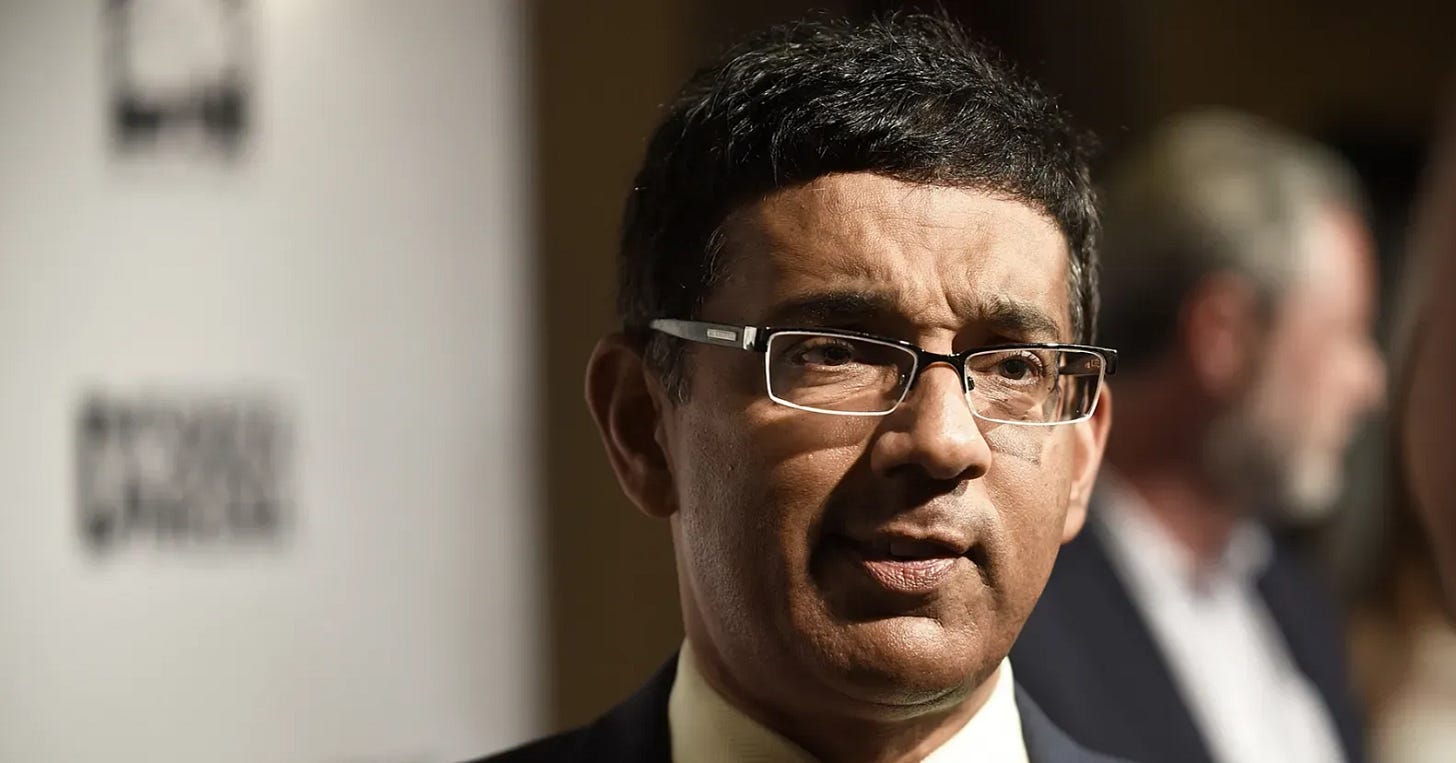For 40 years, whether behind the scenes or on a soapbox, Dinesh D’Souza has been at the centre of American right-wing politics. He served as an advisor to Reagan during his administration and was later affiliated with right-of-centre think tanks American Enterprise Institute and the Hoover Institution. Since 2012, he has also directed several popular documentaries, including 2022’s wildly divisive 2000 Mules, in which he infamously alleged the Biden-Trump election had been stolen. He has debated Christopher Hitchens on the subject of Christianity, and has published several best-selling books.
Why did we invite him on?
For approaching a decade now, Dinesh has been one of Trump’s most avid apologists/proponents. Today, however, he finds himself out of touch with the MAGA movement. Now that the coalition has found its way to power, various wings of the ideology are starting to realise perhaps they don’t agree on enough. Why is the ‘America First’ movement suddenly so ‘America Critical’? Who truly represents the movement in 2025? Who are the enemies within?
We also wanted to get Dinesh’s read on the current political climate, his views on Trump’s second term, and where he thinks things are headed.
What did we talk about?
”This political atmosphere does not resemble democracy - it resembles warfare.”
Dinesh is unflinching. In his case, predictably so. He’s been in the orbit of politics since the 1980s, and he’s never seen it like this. That’s quite the assessment. As someone who’s been on the scene for approaching half a century, why does he think this is?
”You have a whole generation of young people who believe the system has betrayed them. It has lied to them and it does not have their priorities at heart. It is an insider system of elites devised to serve their needs … When you find one conspiracy theory after another coming true, you become a sucker for conspiracies, no matter how implausible they are.”
Americans (God love ‘em) are (no offence intended) conspiratorial by nature. In fact, for much of the country, it’s something of a pass-time. You don’t find Bigfoot hunters in Britain.
This is often grounds for dismissal. But it’s not entirely unfounded. “Oh, that’s just a conspiracy theory” has long been an irrecoverable put-down of any non-narrative political theorising. But in 2025, when so many ‘conspiracy theories’ have been proven true - or, at least, true enough to invite further questions - it’s become a more than reasonable disposition. In the case of Dinesh, recent experiences have softened him to this outlook.
”When I made 2016: Obama’s America [Dinesh’s controversial 2012 documentary], it was a huge success. A week later, I had FBI agents banging on my door … If they could have locked me up for 10 years, they would have. That’s a sobering experience. To them, I’m not a dissident - I’m an enemy. Our politics has been gangsterised. That’s not an illusion, that’s a reality.”
This phenomenon isn’t new; Trump’s first term came about, in part, as a manifestation of the country’s natural suspicion of elites. 16 years into a century that includes the Iraq War and the ‘08 financial crisis, their popularity was at an all-time low.
When Trump left office in 2021, only his most optimistic apologists ever thought he’d stage a comeback. Last year, he won the election, the popular vote, and every single swing state. If his win in 2016 reflected an aspect of the American psyche we often don’t confront, what did his win last year say about the country?
Does he reflect the America we’re talking about now?
”Trump 2 is quite different from Trump 1, and he reflects the shift we’re talking about. He realised that he was in a completely different situation. Once you’re subjected to a certain level of humiliation, degradation and abuse, you decide enough’s enough, and you go scorched earth. You’re seeing an aggression we never saw in the first term, and it’s a justified aggression.”
Much has been made of the MAGA coalition - a rag-tag Island of Misfit Toys made up of old-school Republicans, defecting Democrats, libertarians, anti-war types, and accelerationists. That coalition is now dividing, and on a number of core issues. What’s more, some factions are developing the very characteristics they once condemned in the extreme left - the very people who helped put Trump in the White House back in 2016.
Briefly, it looked like the base might have a unifying moment: the assassination of Charlie Kirk. That, Konstantin argues, was the time for everyone, on both sides of the aisle, to vow to turn down the temperature. In a society where innocent people are murdered for their beliefs, nobody wins.
Unfortunately, that doesn’t seem to have happened. In fact, perhaps predictably, it has been a catalyst for radicalisation. Further, it’s being helped along, as Dinesh argues, by some of the right’s most influential voices…




